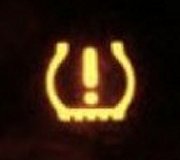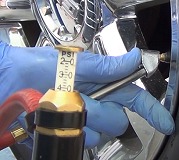Only two possibilities. A sticking parking brake cable or brake fluid contamination. If you don't use the parking brake regularly, the rear cables can get rusty or sluggish. Then, when they're applied, they won't completely release. You can look at the two cables where they exit the casings, about a foot ahead of each wheel. The cable should appear dirty over its entire length. If about 1/2" of it is clean or shiny right where it exits the casing, it hasn't completely retracted. It might go in if you flex the casing by hand.
Another way to tell if they're sticking is to stop on a small incline, shift to neutral, and release the brake, then watch to see if the truck starts to move on its own. If not, you have a sticking brake.
Brake fluid that is contaminated with a petroleum product such as engine oil, transmission fluid, or power steering fluid will cause all rubber parts to swell. The lip seals in the master cylinder will grow and deform to block the ports. This will cause pressurized fluid to be trapped and keep the brakes applied. This usually affects the front disc brakes the most. The only fix for this is to replace ALL rubber parts including hoses, front calipers, rear wheel cylinders, master cylinder, and the valves that contain rubber o-rings and seals. The best evidence is found by inspecting the rubber seals under the caps of the master cylinder. If they balloon up and prevent you from reinstalling them, suspect fluid contamination.
Caradiodoc
Wednesday, April 29th, 2009 AT 12:21 AM



